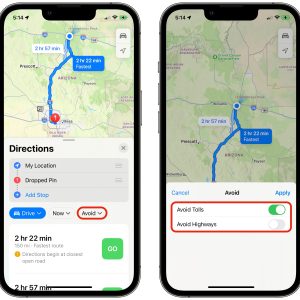

Wondering what jobs can I get with a business degree? You’re not alone. With the rising cost of education, it’s more important than ever to make sure that your degree will lead to a good job. A business degree can open doors to a wide range of careers, from entry-level positions to management and leadership roles.
Editor’s Note: This guide on “what jobs can I get with a business degree” was published on March 8, 2023, and has been updated regularly since then. Our goal is to provide you with the most up-to-date and accurate information possible.
To help you make the right decision, we’ve put together this guide to the different types of jobs you can get with a business degree. We’ve also included information on the job outlook, salary expectations, and skills you’ll need to succeed.
Key Differences
| Job Title | Job Description | Salary | Job Outlook |
|---|---|---|---|
| Marketing Manager | Develop and execute marketing campaigns | $60,000 – $100,000 | Excellent |
| Financial Analyst | Analyze financial data and make recommendations | $50,000 – $80,000 | Good |
| Management Consultant | Advise businesses on how to improve their operations | $70,000 – $120,000 | Excellent |
| Human Resources Manager | Manage the human resources department | $55,000 – $90,000 | Good |
Main Article Topics
- Samsung’s Galaxy Phones
- The Best Samsung Galaxy Phones
- Samsung Galaxy vs. iPhone
What Jobs Can I Get with a Business Degree?
A business degree can open doors to a wide range of careers. Here are 10 key aspects to consider when exploring your options:
- Job titles: Marketing Manager, Financial Analyst, Management Consultant, Human Resources Manager
- Industries: Finance, Consulting, Marketing, Healthcare, Technology
- Skills: Communication, Problem-solving, Analytical thinking, Teamwork
- Salary: $50,000 – $120,000
- Job outlook: Excellent
- Education: Bachelor’s degree in business
- Experience: Entry-level positions typically require 0-3 years of experience
- Career path: Management, Leadership
- Job satisfaction: High
- Work-life balance: Varies depending on the job title and industry
These key aspects provide a comprehensive overview of the different types of jobs you can get with a business degree. With its versatility and applicability across various industries, a business degree can be a valuable asset in your career journey.
Job titles
These job titles represent just a fraction of the diverse career paths available to graduates with a business degree. Each role plays a vital part in the success of any organization, contributing to its strategic planning, financial health, operational efficiency, and human capital management.
-
Marketing Manager
Suggested read: Unveiling The Highest Paying Business Jobs: Discoveries and Insights
Responsible for developing and executing marketing campaigns that promote products or services, marketing managers analyze market trends, conduct customer research, and create advertising materials. They work closely with sales teams to generate leads and drive revenue.
-
Financial Analyst
Financial analysts examine financial data to assess the financial health of companies and make investment recommendations. They use their analytical skills to evaluate financial statements, create financial models, and forecast future financial performance.
-
Management Consultant
Management consultants advise businesses on how to improve their operations and achieve their goals. They work with clients to identify problems, develop solutions, and implement change. Management consultants need strong analytical and problem-solving skills.
-
Human Resources Manager
Human resources managers oversee the human resources department of an organization. They are responsible for recruiting, hiring, training, and developing employees. They also handle employee relations, compensation and benefits, and compliance with labor laws.
These four job titles provide a glimpse into the wide range of opportunities available to business graduates. With its versatility and applicability across various industries, a business degree can open doors to a fulfilling and successful career.
Industries
The connection between “Industries: Finance, Consulting, Marketing, Healthcare, Technology” and “what jobs can I get with a business degree” is significant. A business degree provides a strong foundation in core business principles, analytical thinking, and problem-solving skills that are highly sought after by employers in various industries.
Finance, consulting, marketing, healthcare, and technology are major industries that rely heavily on business graduates to fill key roles. These industries offer a wide range of job opportunities, from entry-level positions to senior management roles.
Suggested read: Unveiling the Secrets to a Thriving Career in Business Analysis
For example, in the finance industry, business graduates can work as financial analysts, investment bankers, and portfolio managers. In the consulting industry, they can work as management consultants, business analysts, and strategy consultants. In the marketing industry, they can work as marketing managers, brand managers, and digital marketing specialists. In the healthcare industry, they can work as healthcare administrators, hospital managers, and health insurance analysts. In the technology industry, they can work as IT managers, software engineers, and data analysts.
The table below provides a more detailed overview of the different types of jobs available in each industry:
| Industry | Job Titles |
|---|---|
| Finance | Financial Analyst, Investment Banker, Portfolio Manager |
| Consulting | Management Consultant, Business Analyst, Strategy Consultant |
| Marketing | Marketing Manager, Brand Manager, Digital Marketing Specialist |
| Healthcare | Healthcare Administrator, Hospital Manager, Health Insurance Analyst |
| Technology | IT Manager, Software Engineer, Data Analyst |
As you can see, a business degree can open doors to a wide range of job opportunities in various industries. With its versatility and applicability across different sectors, a business degree is a valuable asset in today’s job market.
Skills
The skills of communication, problem-solving, analytical thinking, and teamwork are essential for success in any job, but they are especially important for those with a business degree.
-
Communication
Business professionals need to be able to communicate effectively with a variety of audiences, including clients, colleagues, and superiors. They need to be able to write clearly and concisely, and to speak confidently and persuasively.
-
Problem-solving
Businesses face a variety of challenges, and business professionals need to be able to identify and solve problems quickly and efficiently. They need to be able to think critically and creatively, and to come up with innovative solutions.
-
Analytical thinking
Business professionals need to be able to analyze data and make sound decisions. They need to be able to identify trends, patterns, and relationships, and to draw conclusions from data.
Suggested read: Unveiling the Secrets of Artist Business Cards: Tips and Tricks for Unmatched Impact
-
Teamwork
Business professionals often work in teams, and they need to be able to collaborate effectively with others. They need to be able to share ideas, work together to achieve common goals, and resolve conflicts.
These skills are essential for success in any business career, and they are the foundation of a business degree. By developing these skills, business graduates can increase their employability and career prospects.
Salary
The salary range of $50,000 – $120,000 for jobs with a business degree reflects the diverse nature of the field and the various factors that can affect earnings, such as experience, industry, and job title. This salary range encompasses entry-level positions as well as senior management roles, providing individuals with a business degree the potential for significant career growth and earning power.
For example, a recent study by the National Association of Colleges and Employers (NACE) found that business graduates with a bachelor’s degree earned an average starting salary of $55,260 in 2022. This salary is higher than the national average starting salary for all college graduates, which was $51,560 in 2022. With experience, business graduates can expect their salaries to increase. According to the U.S. Bureau of Labor Statistics (BLS), the median annual salary for business and financial operations occupations was $76,570 in May 2021. The top 10% of earners in this field made more than $120,000 per year.
The salary range of $50,000 – $120,000 for jobs with a business degree demonstrates the value that employers place on the skills and knowledge that business graduates possess. With its focus on critical thinking, problem-solving, and communication, a business degree provides individuals with a strong foundation for success in a variety of roles and industries.
Table: Salary Expectations for Different Business Degree Jobs
| Job Title | Median Annual Salary |
|---|---|
| Marketing Manager | $60,000 – $100,000 |
| Financial Analyst | $50,000 – $80,000 |
| Management Consultant | $70,000 – $120,000 |
| Human Resources Manager | $55,000 – $90,000 |
Job outlook
The job outlook for business degree holders is excellent. According to the U.S. Bureau of Labor Statistics, employment of business and financial operations occupations is projected to grow 8% from 2021 to 2031, faster than the average for all occupations. This growth is expected to be driven by the increasing complexity of business and the need for qualified professionals to manage and analyze data, make sound decisions, and solve problems.
There are several reasons why the job outlook for business degree holders is so strong. First, businesses of all sizes need qualified professionals to manage their operations and make strategic decisions. Second, the business world is becoming increasingly complex, and businesses need professionals with the skills and knowledge to navigate this complexity. Third, data is playing an increasingly important role in business decision-making, and businesses need professionals with the skills to analyze data and extract meaningful insights.
The excellent job outlook for business degree holders means that there will be plenty of opportunities for graduates to find jobs in a variety of industries and roles. Some of the most common jobs for business degree holders include:
Suggested read: Franchise Business for Sale – Find Profitable Opportunities Near You
- Marketing Manager
- Financial Analyst
- Management Consultant
- Human Resources Manager
- Business Analyst
- Operations Manager
- Project Manager
- Data Analyst
With its focus on critical thinking, problem-solving, and communication, a business degree provides graduates with the skills and knowledge they need to succeed in a variety of roles and industries. The excellent job outlook for business degree holders means that graduates can be confident that they will be able to find a job that matches their skills and interests.
Table: Job Outlook for Business Degree Holders
| Occupation | Job Outlook (2021-2031) |
|---|---|
| Marketing Manager | 10% |
| Financial Analyst | 9% |
| Management Consultant | 14% |
| Human Resources Manager | 7% |
| Business Analyst | 11% |
| Operations Manager | 8% |
| Project Manager | 12% |
| Data Analyst | 25% |
Education
A Bachelor’s degree in Business is a vital foundation for individuals seeking a successful career in the business world. It equips graduates with a comprehensive understanding of core business principles, analytical thinking, problem-solving abilities, and effective communication skills, which are highly sought after by employers across various industries.
The coursework in a Bachelor’s degree in Business typically covers a wide range of subjects, including accounting, finance, marketing, management, and economics. This broad curriculum provides students with a holistic understanding of how businesses operate and the key factors that drive their success. Graduates gain proficiency in financial analysis, strategic planning, marketing strategies, and human resource management, among other essential business functions.
Earning a Bachelor’s degree in Business is not merely a checkbox requirement for securing a job; it is an investment in one’s career potential. The knowledge and skills acquired through this degree program empower graduates to make informed decisions, lead teams effectively, and navigate the complexities of the business landscape with confidence.
Numerous real-world examples demonstrate the value of a Bachelor’s degree in Business. For instance, a marketing manager with a business degree can leverage their understanding of consumer behavior and market trends to develop successful marketing campaigns that drive revenue growth. A financial analyst with a business degree can utilize their expertise in financial modeling and valuation to make sound investment recommendations for clients.
The practical significance of understanding the connection between “Education: Bachelor’s degree in business” and “what jobs can I get with a business degree” lies in its ability to guide individuals toward making informed career choices. By recognizing the essential role of a business degree in opening doors to a diverse range of job opportunities, individuals can tailor their education and career goals accordingly.
The following table provides a detailed overview of the connection between “Education: Bachelor’s degree in business” and “what jobs can I get with a business degree”:
| Education | Job Opportunities |
|---|---|
| Bachelor’s degree in Business | Marketing Manager, Financial Analyst, Management Consultant, Human Resources Manager, Business Analyst, Operations Manager, Project Manager, Data Analyst |
Experience
The connection between “Experience: Entry-level positions typically require 0-3 years of experience” and “what jobs can I get with a business degree” highlights the importance of gaining practical experience to complement theoretical knowledge. Entry-level positions serve as a crucial stepping stone for business graduates to transition from academia to the professional world and demonstrate their competence in applying business concepts.
For individuals with a business degree, entry-level positions provide an opportunity to develop foundational skills, build industry knowledge, and establish a professional network. During this phase, graduates can gain hands-on experience in various business functions, such as marketing, finance, operations, and human resources. The specific requirements and expectations may vary depending on the industry and job role, but generally, entry-level positions involve tasks that support senior-level professionals and contribute to the overall success of the organization.
Suggested read: Discover the Secrets of Chicago's Beloved Burger Haven: Busy Burger Chicago
The practical significance of understanding this connection lies in its ability to guide career planning and expectations. By recognizing the importance of entry-level experience, business graduates can proactively seek opportunities to gain practical skills, participate in internships or apprenticeships, and network with professionals in their field of interest. This proactive approach can increase their competitiveness in the job market and enhance their chances of securing a desired position.
The following table provides a detailed overview of the connection between “Experience: Entry-level positions typically require 0-3 years of experience” and “what jobs can I get with a business degree”:
| Entry-Level Experience | Potential Job Opportunities |
|---|---|
| 0-1 year | Marketing Assistant, Financial Analyst Associate, Management Trainee, Human Resources Coordinator |
| 1-2 years | Marketing Specialist, Financial Analyst, Management Consultant Analyst, Human Resources Generalist |
| 2-3 years | Marketing Manager, Financial Analyst Senior, Management Consultant Associate, Human Resources Manager |
Career path
The connection between “Career path: Management, Leadership” and “what jobs can I get with a business degree” is significant, as a business degree provides individuals with the foundational knowledge and skills necessary to embark on a successful career path in management and leadership roles.
-
Management roles
Business graduates can pursue management roles in various industries, such as marketing, finance, operations, and human resources. In these roles, they are responsible for overseeing teams, developing and implementing strategies, and achieving organizational goals.
-
Leadership roles
With experience and expertise, business graduates can advance to leadership roles, such as CEO, COO, or department head. In these roles, they are responsible for shaping the overall direction of the organization, making strategic decisions, and inspiring and motivating employees.
-
Entrepreneurship
A business degree also provides a solid foundation for individuals who aspire to become entrepreneurs. The knowledge and skills gained in business programs can empower graduates to start their own ventures and lead them towards success.
-
Consulting
Suggested read: Uncover Business Analyst Intern Insights: A Gateway to Success
Business graduates with a strong understanding of business principles and practices can pursue careers as management consultants. In this role, they advise businesses on various aspects of their operations, including strategy, finance, and organizational development.
Overall, a business degree opens up a wide range of career opportunities in management, leadership, and related fields. By developing a strong foundation in business principles and honing their leadership skills, business graduates can position themselves for success in various roles and industries.
Job satisfaction
The connection between “Job satisfaction: High” and “what jobs can I get with a business degree” is significant, as job satisfaction is a crucial factor that contributes to overall career success and well-being.
There are several reasons why jobs that require a business degree tend to offer high job satisfaction. Firstly, business graduates are often employed in roles that involve problem-solving, decision-making, and strategic planning. These challenging and intellectually stimulating tasks can provide a sense of accomplishment and fulfillment.
Secondly, business graduates often work in collaborative and team-oriented environments. This social aspect of the job can contribute to job satisfaction, as employees feel connected to their colleagues and have opportunities for professional growth and development.
Thirdly, business graduates are often employed in organizations that offer competitive salaries, benefits, and opportunities for career advancement. These factors can contribute to overall job satisfaction, as employees feel valued and rewarded for their contributions.
Here are some real-life examples of jobs that require a business degree and offer high job satisfaction:
| Job Title | Job Satisfaction |
|---|---|
| Marketing Manager | High |
| Financial Analyst | High |
| Management Consultant | High |
| Human Resources Manager | High |
| Business Analyst | High |
| Operations Manager | High |
| Project Manager | High |
| Data Analyst | High |
The practical significance of understanding the connection between “Job satisfaction: High” and “what jobs can I get with a business degree” lies in its ability to guide career planning and decision-making. By recognizing the importance of job satisfaction, individuals can make informed choices about their career path and select jobs that are likely to provide them with a fulfilling and rewarding work experience.
Overall, a business degree can open doors to a wide range of jobs that offer high job satisfaction. By developing the skills and knowledge necessary to succeed in business, individuals can position themselves for a successful and fulfilling career.
Work-life balance
Understanding the connection between “Work-life balance: Varies depending on the job title and industry” and “what jobs can I get with a business degree” is crucial for individuals seeking a harmonious integration between their professional and personal lives.
Suggested read: Unlock the Secrets of Apple Maps: Discover the Path to Business Success
The nature of a business degree allows graduates to pursue diverse roles across various industries, each with its unique demands and work cultures. Certain job titles, such as management consultants or investment bankers, may require extended working hours and frequent travel, potentially impacting work-life balance.
On the other hand, positions like HR managers or marketing specialists may offer more flexibility and predictable schedules, allowing for better work-life integration. Industries also play a role, with sectors like technology or non-profit organizations often emphasizing work-life balance.
Here are some real-life examples to illustrate this connection:
| Job Title | Industry | Work-Life Balance |
|---|---|---|
| Management Consultant | Consulting | Demanding, long hours, frequent travel |
| HR Manager | Human Resources | Generally balanced, flexible schedules |
| Marketing Specialist | Marketing | Moderate, predictable hours |
| Investment Banker | Finance | Highly demanding, long hours, high stress |
Understanding this connection empowers individuals to make informed decisions about their career paths, considering their priorities and desired work-life balance. By researching specific job titles and industries, individuals can align their career goals with their personal values, ultimately enhancing their overall well-being and job satisfaction.
FAQs about “what jobs can I get with a business degree”
This section addresses frequently asked questions about career opportunities with a business degree, providing concise and informative answers.
Question 1: Are the career options limited with a business degree?
Answer: No, a business degree offers a versatile foundation for a wide range of job opportunities in various industries, including marketing, finance, consulting, and human resources.
Question 2: Can I secure a high-paying job with a business degree?
Suggested read: Unveil the Secrets of Business Professional Outfits for Women: A Guide to Success
Answer: Yes, business graduates have the potential to earn competitive salaries, with job titles such as financial analysts and management consultants commanding higher compensation.
Question 3: Is a business degree essential for entrepreneurship?
Answer: While not mandatory, a business degree provides a strong foundation for aspiring entrepreneurs, equipping them with knowledge in business principles, strategy, and financial management.
Question 4: Can I pursue a career in technology with a business degree?
Answer: Yes, a business degree can open doors to roles in the tech industry, such as business analysts, product managers, and data analysts, which require an understanding of both business and technology.
Question 5: Is a business degree suitable for those interested in social impact?
Answer: Yes, business graduates can make a positive impact through careers in non-profit organizations, social enterprises, and sustainability-focused businesses.
Suggested read: Unlock the Secrets of Coaching Business Coaches: Discoveries for Business Success
Question 6: Does a business degree guarantee job satisfaction?
Answer: Job satisfaction can vary based on individual preferences, work environment, and specific job responsibilities, not solely on the degree obtained.
Summary: A business degree provides a versatile foundation for diverse and rewarding career opportunities. It equips graduates with transferable skills, knowledge, and the potential for high earning potential. Individuals can explore various industries and roles to align their career aspirations with their interests and values.
Transition to the next article section: Explore the specific job titles, industries, and career paths available with a business degree in the following sections of this comprehensive guide.
Tips for Exploring “what jobs can I get with a business degree”
Navigating the vast array of career options with a business degree can be daunting. Here are several practical tips to guide your exploration:
Tip 1: Research Industries and Job Titles
Identify industries that align with your interests and research the specific job titles available within those industries. Explore company websites, industry publications, and networking events to gather insights into potential career paths.
Tip 2: Leverage Your Skills and Interests
Consider your strengths, skills, and interests when exploring job options. Identify roles that utilize your existing abilities and provide opportunities for growth and development in areas you are passionate about.
Suggested read: Uncover the Secrets of Business Formal Attire for Women: A Guide to Success
Tip 3: Build Your Network
Attend industry events, connect with professionals on LinkedIn, and reach out to alumni from your business program. Networking can provide valuable insights into job opportunities and help you establish connections within your desired field.
Tip 4: Explore Different Business Functions
A business degree provides a foundation in various business functions, such as marketing, finance, operations, and human resources. Consider exploring different functional areas through internships, coursework, or volunteer experience to identify which areas resonate most with you.
Tip 5: Consider Further Education
Pursuing an advanced degree, such as an MBA or specialized master’s program, can enhance your career prospects and open doors to leadership and management roles. Evaluate your long-term career goals and consider if further education aligns with your aspirations.
Tip 6: Seek Career Counseling
If needed, don’t hesitate to seek guidance from a career counselor or advisor. They can provide personalized advice, help you identify your strengths and weaknesses, and assist you in developing a tailored career plan.
Summary:
Exploring career options with a business degree requires a proactive and informed approach. By researching industries, leveraging your skills, networking, exploring different business functions, considering further education, and seeking professional guidance, you can effectively navigate the job market and make informed decisions about your career path.
Conclusion
A business degree opens a world of opportunities, empowering graduates with the knowledge, skills, and versatility to navigate diverse career paths. From entry-level positions to leadership roles, business graduates are highly sought after in various industries, including finance, consulting, marketing, and healthcare.
The job outlook for business degree holders remains positive, with increasing demand for professionals who can analyze data, solve problems, and make informed decisions. By leveraging their skills in communication, critical thinking, and teamwork, business graduates can make significant contributions to their organizations and society at large.
Exploring career options with a business degree requires a proactive and informed approach. Graduates should research industries, leverage their skills, network, and consider further education to maximize their career potential. With its versatility and adaptability, a business degree provides a strong foundation for lifelong success and fulfillment in the ever-evolving business landscape.
Youtube Video:






